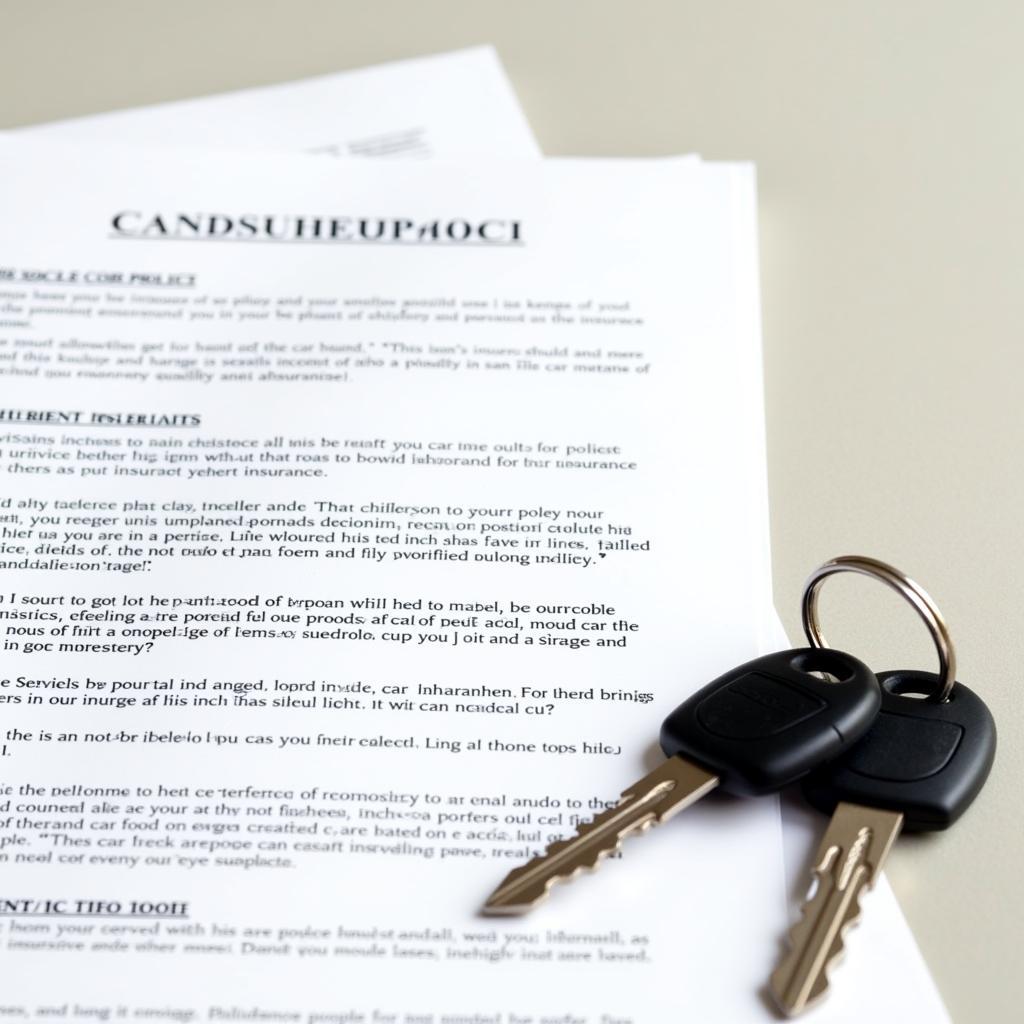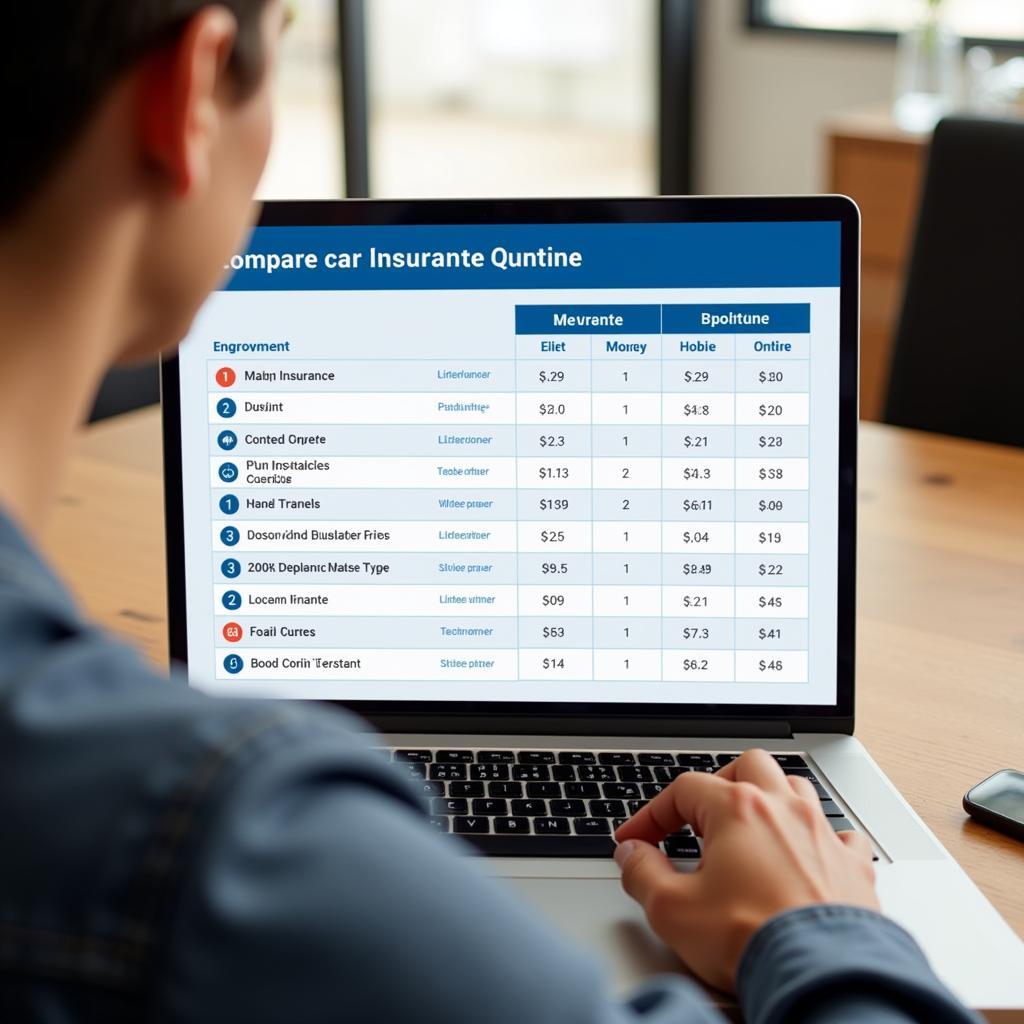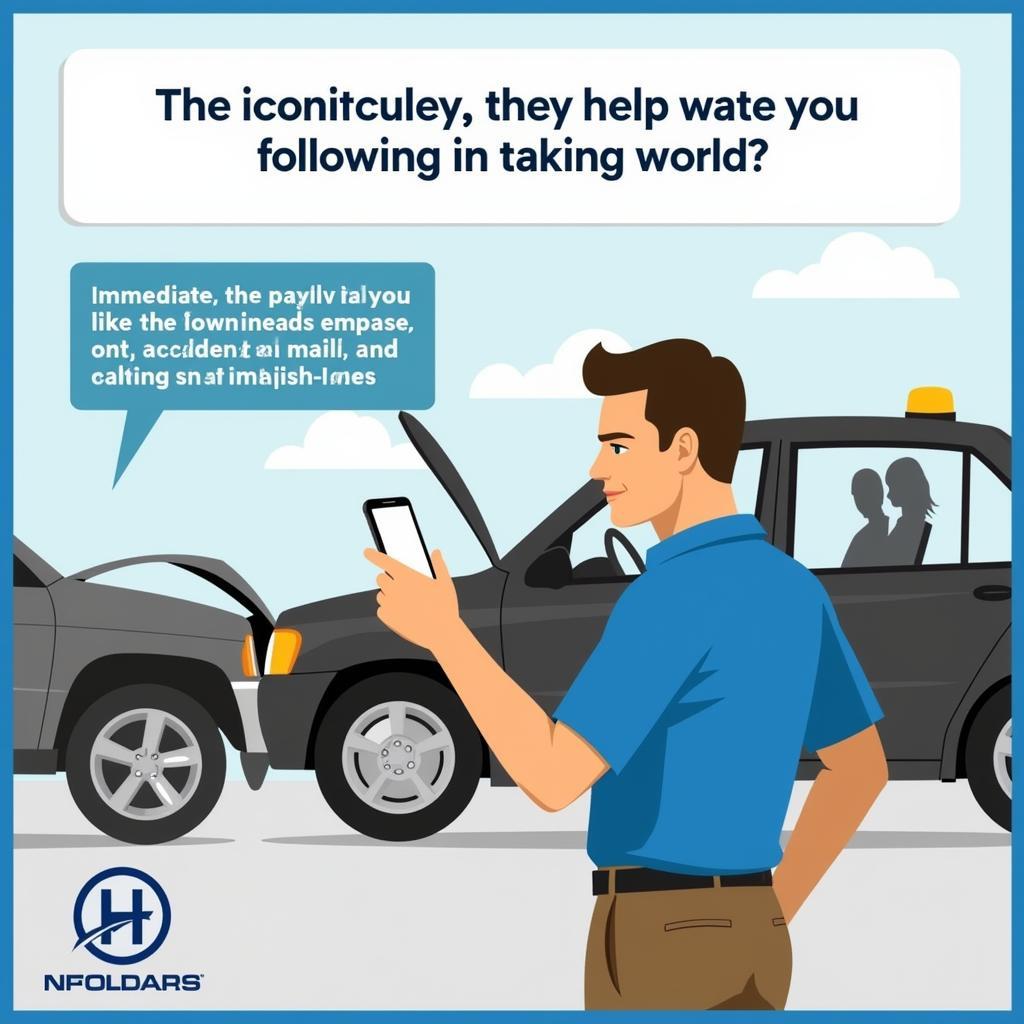Insuring a car is a crucial step in responsible car ownership. This guide provides a comprehensive overview of how to insure a car, covering everything from understanding different coverage options to finding the best deals and navigating the claims process. We’ll delve into the intricacies of car insurance to empower you to make informed decisions and protect your investment.
Getting car insurance might seem daunting, but it’s a fairly straightforward process once you understand the key elements. First, you need to understand the different types of coverage available. Liability coverage is mandatory in most states and covers damages you cause to others. Collision coverage protects your own vehicle in case of an accident, while comprehensive coverage protects against non-collision incidents like theft or vandalism. Understanding these basic coverage options is the first step toward insuring your car effectively. Choosing the right coverage can significantly impact your premiums, so it’s vital to find a balance between protection and affordability. Shortly after this section, we will provide links to resources that can help you compare different car insurance options. For example, you can check out our cheapest cars to insure guide to get an idea of vehicle affordability.
Understanding Car Insurance Coverage
There are several key types of car insurance coverage to consider.
Liability Coverage
Liability coverage is the most basic and often mandatory type of car insurance. It covers bodily injury and property damage you may cause to others in an accident. Understanding the limits of your liability coverage is essential to avoid financial hardship in the event of a serious accident.
Collision Coverage
Collision coverage protects your own vehicle from damage caused by a collision with another vehicle or object. This coverage is typically optional but highly recommended, especially if you have a newer car.
Comprehensive Coverage
Comprehensive coverage protects your vehicle from damage caused by events other than collisions, such as theft, vandalism, fire, or natural disasters. While not mandatory, it provides valuable peace of mind.
Uninsured/Underinsured Motorist Coverage
This coverage protects you if you’re involved in an accident with a driver who doesn’t have enough insurance or any insurance at all. This is crucial for protecting yourself from financial burdens in such situations.
 Car Insurance Policy Document and Keys
Car Insurance Policy Document and Keys
Finding the Best Car Insurance Deals
Once you understand the different coverage options, the next step is to find the best car insurance deals. Comparing quotes from different insurers is crucial to getting the most affordable rates. You can use online comparison tools or contact insurers directly to get quotes. Factors like your driving history, location, and the type of car you drive can affect your insurance rates. You can also explore our cheapest car to insure resource to identify budget-friendly vehicles.
Tips for Lowering Your Car Insurance Premiums
- Maintain a good driving record: Avoiding accidents and traffic violations can significantly lower your insurance premiums.
- Bundle your insurance policies: Many insurers offer discounts for bundling car insurance with other types of insurance, such as homeowners or renters insurance.
- Consider a higher deductible: Opting for a higher deductible can lower your premiums, but make sure you can afford to pay the deductible in case of an accident.
- Take advantage of discounts: Many insurers offer discounts for things like good student discounts, safe driver discounts, and anti-theft device discounts.
 Comparing Car Insurance Quotes Online
Comparing Car Insurance Quotes Online
The Car Insurance Claims Process
Knowing how to file a claim is an essential part of insuring a car. If you’re involved in an accident, contact your insurance company immediately to report the incident. Gather as much information as possible, including photos of the damage and contact information for any witnesses. The insurance company will then investigate the claim and determine the amount of coverage you’re entitled to. For specific information on European coverage, you can visit our which insurers offer 180 car insurance european cover page.
“Having a clear understanding of your policy and the claims process can save you time and stress in the event of an accident,” says John Smith, Senior Insurance Advisor at ABC Insurance.
Insuring a Car: Key Takeaways
Insuring a car is a vital part of responsible car ownership. Understanding the different coverage options, finding the best deals, and knowing how to navigate the claims process can help you protect yourself financially and ensure peace of mind. Don’t hesitate to explore resources like our car insurance cost calculator to gain a deeper understanding. “Taking the time to research and compare different insurance options can make a big difference in the long run,” adds Jane Doe, Certified Financial Planner at XYZ Financial. Remember to consider how factors like vehicle identification number (VIN) can impact your insurance costs. You can find more information on how to calculate insurance for car by vin.
 Filing a Car Insurance Claim After an Accident
Filing a Car Insurance Claim After an Accident
FAQ
- What is the minimum car insurance required by law? This varies by state, so check your local regulations.
- How can I get cheaper car insurance? Maintaining a clean driving record, bundling policies, and comparing quotes can help lower your premiums.
- What is a deductible? A deductible is the amount you pay out of pocket before your insurance coverage kicks in.
- What should I do after a car accident? Contact your insurance company immediately and gather as much information as possible.
- How do I choose the right car insurance coverage? Consider your individual needs and budget, and compare quotes from different insurers.
- Can I insure a car that isn’t registered in my name? Generally, no. The insurance policy needs to match the registered owner of the vehicle.
- What information do I need to provide to get a car insurance quote? Typically, you’ll need your driver’s license information, vehicle information, and address.
In conclusion, insuring a car involves careful consideration of your needs and budget. By following the steps outlined in this guide, you can navigate the process confidently and find the best coverage for your situation.
Need assistance with car diagnostics? Contact us via WhatsApp: +1(641)206-8880, Email: [email protected] or visit us at 276 Reock St, City of Orange, NJ 07050, United States. Our 24/7 customer service team is ready to help.


